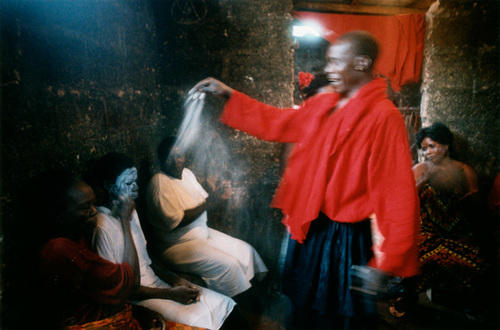
Red alert for diseases in Swiss red-light districts

One in five sex workers in Switzerland has a sexually transmitted disease (STD) – often without knowing it.
Pietro Vernazza, head of the infectious diseases department at St Gallen cantonal hospital, and his team examined 600 prostitutes for STDs. The study has not yet been published, but a report in the SonntagsZeitungExternal link said the initial results show that every fifth prostitute is infected but without showing any symptoms or problems.
The women are carriers of gonorrhoea, chlamydia and syphilis in particular. The researchers found practically no cases of HIV or hepatitis, nevertheless Vernazza is alarmed.
“If the women are not treated, it poses a risk for public health,” he said. “Clients can take the infections home.” Gonorrhoea and syphilis, for example, can be passed on just by oral sex.
If untreated, a person can be infectious for several weeks. Vernazza therefore suggests making it easier for prostitutes to have access to tests and supporting them financially by helping them with health insurance, for example.
Prostitution has been legal and regulated in Switzerland since 1942. However, street prostitution is illegal, except in specially designated areas in major cities.
The Swiss government says it is against banning prostitution or the buying of sexual services, but has proposed measures to better protect sex workers and to fight against human trafficking.

More
In Europe, Nigerian prostitutes are held captive by ‘black magic’

In compliance with the JTI standards
More: SWI swissinfo.ch certified by the Journalism Trust Initiative




























You can find an overview of ongoing debates with our journalists here . Please join us!
If you want to start a conversation about a topic raised in this article or want to report factual errors, email us at english@swissinfo.ch.